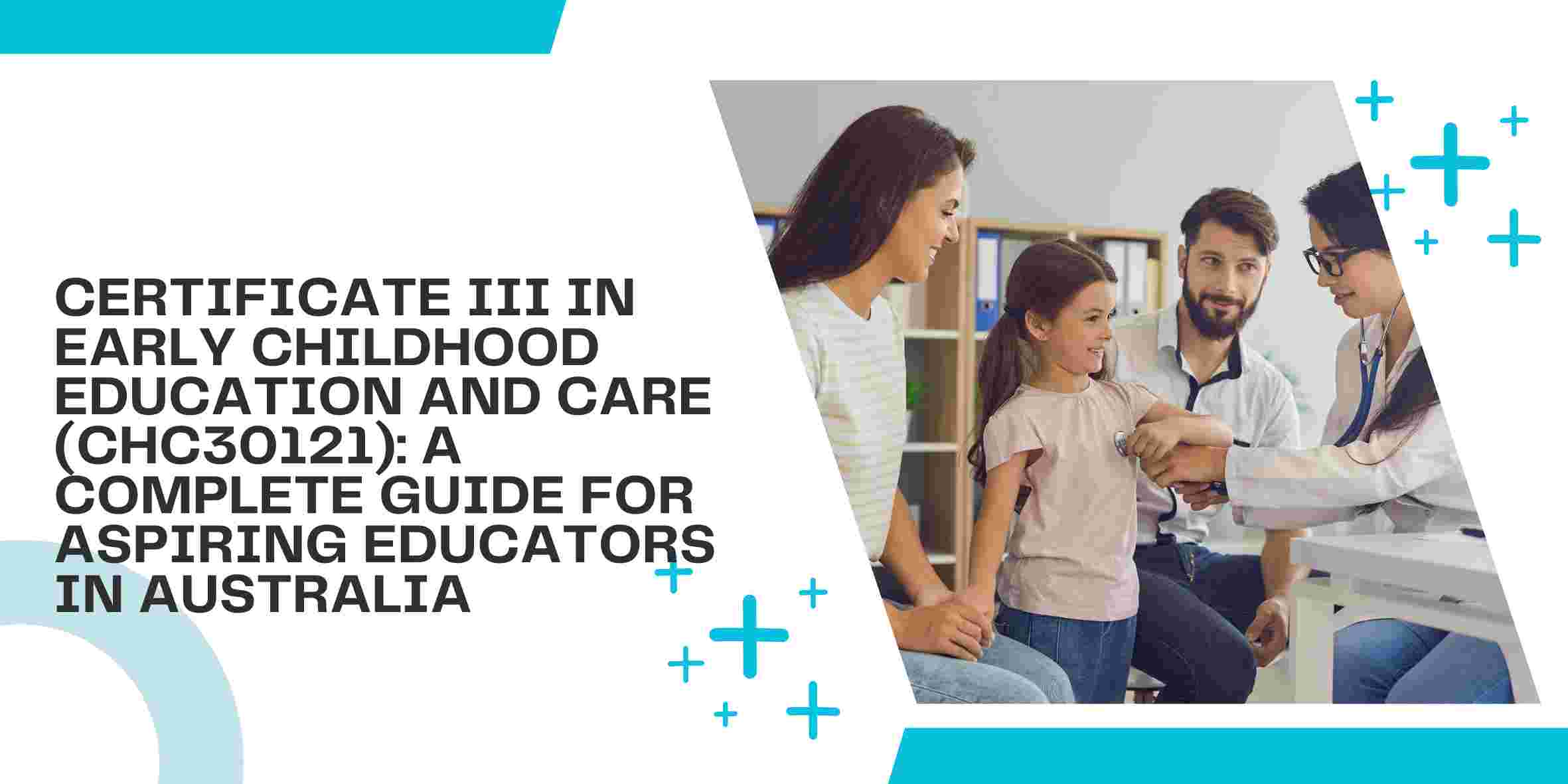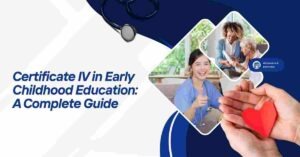Introduction
Early childhood is one of the most crucial phases in human development. The role of early childhood educators is vital in shaping a child’s foundation for lifelong learning and well-being. In Australia, the Cert 3 in Early Childhood Education and Care (CHC30121) is the entry-level qualification required to work in the early childhood education sector. It’s nationally recognised and forms the base for further qualifications in childcare.
This article covers everything you need to know about the Cert 3 Early Childhood Education and Care course, including its objectives, course structure, job outcomes, study modes, and why it’s a popular choice for those passionate about working with children.
What is Certificate III in Early Childhood Education and Care?
The CHC30121 – Cert 3 in Early Childhood Education and Care prepares learners to support the development, wellbeing, and learning of children aged 0–6 years. This qualification enables individuals to work under supervision in early learning settings such as long day care centres, family day care, and kindergartens.
It provides the skills and knowledge to create a safe, nurturing, and supportive environment for young children in line with the National Quality Framework (NQF) and the Early Years Learning Framework (EYLF).
Key Objectives of the Course
Develop fundamental skills in early childhood development
Understand children’s physical, emotional, and social needs
Learn how to observe, support, and document children’s development
Promote inclusion and diversity
Ensure health and safety in childcare environments
Apply ethical and legal frameworks in practice
Course Structure and Units
The course typically consists of 17 units, including:
Core Units (15):
CHCECE030 – Support inclusion and diversity
CHCECE031 – Support children’s health, safety and wellbeing
CHCECE032 – Nurture babies and toddlers
CHCECE033 – Develop positive and respectful relationships with children
CHCECE034 – Use an approved learning framework to guide practice
CHCECE035 – Support the holistic learning and development of children
CHCECE036 – Provide experiences to support children’s play and learning
CHCECE037 – Support children to connect with the natural environment
CHCPRT001 – Identify and respond to children and young people at risk
HLTWHS001 – Participate in workplace health and safety
CHCECE038 – Observe children to inform practice
CHCECE039 – Comply with family day care administration requirements (if applicable)
CHCECE040 – Collaborate with families to support children’s learning and development
CHCECE041 – Maintain a safe and healthy environment
CHCECE042 – Foster children’s agency
Elective Units (2 – may vary):
HLTAID012 – Provide First Aid in an education and care setting
CHCDIV001 – Work with diverse people
Entry Requirements
Most Registered Training Organisations (RTOs) have minimal formal prerequisites, but typically expect:
Completion of Year 10 (or equivalent)
Basic literacy, numeracy, and communication skills
A current Working With Children Check (WWCC)
COVID-19 vaccination (based on state regulations)
Duration and Study Modes
The Certificate III can be completed in various formats:
Full-time: 6–12 months
Part-time: Up to 18–24 months
Online: Flexible pacing with trainer support
Blended: Combination of online theory and in-person workshops
Traineeship: Earn while you learn in a real workplace setting
The total course hours usually include 120–160 hours of practical work placement in an early childhood education setting.
Learning Outcomes
Upon successful completion, you’ll be able to:
Create nurturing environments for children’s growth and development
Assist with planning and implementing learning programs
Promote children’s emotional and social wellbeing
Ensure a healthy, safe, and inclusive care environment
Comply with legal and ethical requirements
Communicate effectively with children, families, and coworkers
Career Opportunities
Graduates of Cert 3 Early Childhood Education and Care can work in various early learning settings. Possible job titles include:
Early Childhood Educator (Assistant)
Family Day Care Educator
Playgroup Supervisor
Childcare Worker
Nanny or Au Pair
These roles are available in both the public and private sectors, including:
Long day care centres
Family day care schemes
Preschool or kindergarten programs
Early learning centres
Salary Expectations
The average salary for a Certificate III qualified early childhood educator in Australia ranges from $50,000 to $65,000 per year, depending on location, experience, and the type of service.
Pathways for Further Study
After completing the Certificate III, you may choose to progress to:
Certificate IV in School-Based Education Support
Diploma of Early Childhood Education and Care (CHC50121)
Bachelor’s degree in Early Childhood Education (for teacher registration)
These qualifications open doors to higher responsibility roles like room leader, educational leader, or early childhood teacher.
Course Costs and Government Funding
The cost varies depending on the provider, delivery mode, and location. Fees typically range between AUD 1,500 to AUD 6,000.
Funding options include:
Free TAFE programs (in eligible states like Victoria)
JobTrainer funding
Smart and Skilled (NSW)
Skills Checkpoint (for mid-career workers)
Payment plans and employer sponsorships
Benefits of Studying Cert 3 in Early Childhood
Enter a high-demand and emotionally rewarding career
Work in diverse childcare environments
Flexible study options and pathways
Meet legal requirements to work in childcare in Australia
Lay a solid foundation for long-term career growth in education
Tips for Success
Be patient and empathetic—children learn at different paces
Use creativity to engage children through play and storytelling
Communicate regularly with families about children’s development
Embrace diversity and create inclusive learning environments
Stay current with regulatory changes in the sector
Conclusion
The Cert 3 in Early Childhood Education and Care (CHC30121) is a gateway to a fulfilling career in the early learning sector. It equips aspiring educators with practical skills, theoretical knowledge, and a compassionate mindset to positively influence the lives of young children across Australia.
Whether you’re starting fresh or switching careers, this qualification can set you on a meaningful path where every day brings new learning and growth—not just for the children, but for you as well.
Read more:







